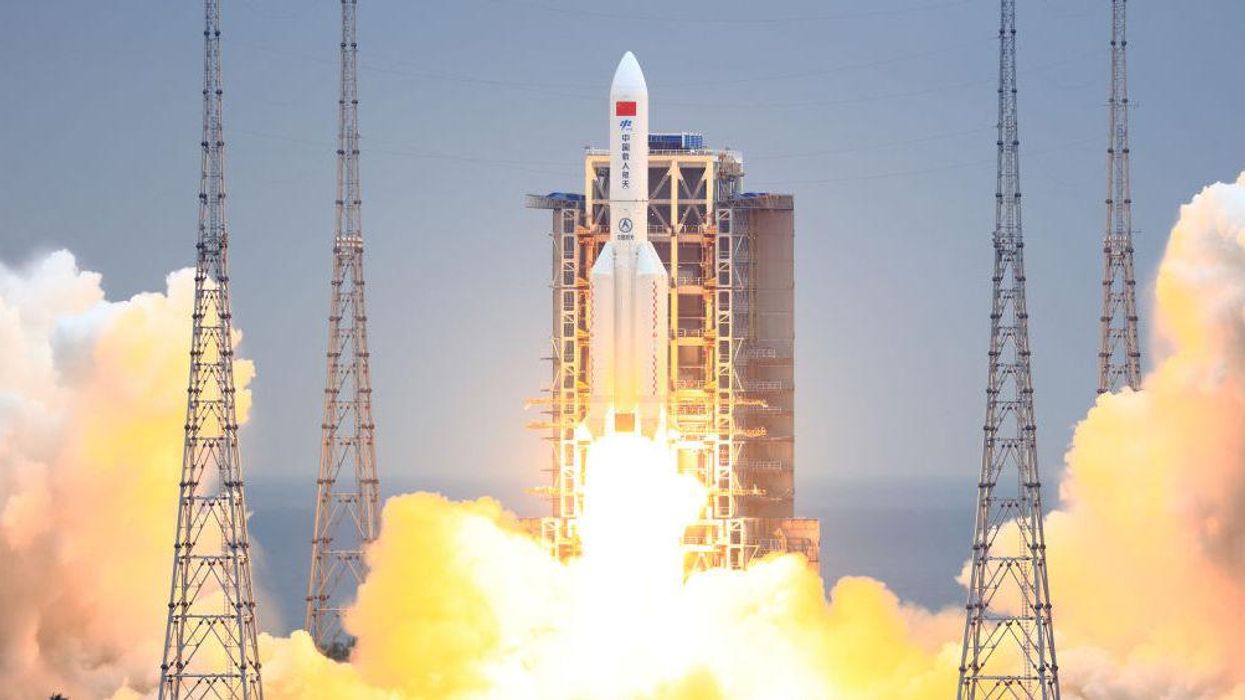
VCG/VCG via Getty Images

NASA Administrator Bill Nelson spoke out against China late Saturday as the world anxiously waited for a free-falling Chinese rocket to crash back to Earth.
As TheBlaze reported, China launched a massive rocket on April 29 to begin building its Tiangong Space Station. The Long March 5B spacecraft was comprised of one core module and four rocket boosters.
One of those boosters — which was approximately 10 stories tall and weighed 23 tons — was due for reentry on Saturday. Falling rocket boosters is common in the space business. But what was uncommon about this booster reentry was that Chinese aerospace officials had no idea when or where the rocket would land, placing a huge swath of the world on high alert.
Nelson released a statement declaring Chinese space operations irresponsible.
"Spacefaring nations must minimize the risks to people and property on Earth of re-entries of space objects and maximize transparency regarding those operations," Nelson said. "It is clear that China is failing to meet responsible standards regarding their space debris."
"It is critical that China and all spacefaring nations and commercial entities act responsibly and transparently in space to ensure the safety, stability, security, and long-term sustainability of outer space activities," he added.
The rocket debris landed in the Indian Ocean west of the Maldives archipelago, according to Chinese state media. Reentry officially happened Sunday at 10:24 a.m. Beijing time, or at 10:24 p.m. EST.
Chinese media claimed "the vast majority of items were burned beyond recognition during the reentry process."
However, according to the Associated Press, "People in Jordan, Oman and Saudi Arabia reported sightings of the Chinese rocket debris on social media, with scores of users posting footage of the debris piercing the early dawn skies over the Middle East."
More from the AP:
The roughly 30-meter (100-foot) long rocket stage is among the biggest space debris to fall to Earth. China's space program, with its close military links, hasn't said why it put the main component of the rocket into space rather than allowing it to fall back to earth soon after discharging its payload, as is usual in such operations.
Harvard astrophysicist Jonathan McDowell agreed Chinese officials were "reckless" with their rocket.
"An ocean reentry was always statistically the most likely. It appears China won its gamble (unless we get news of debris in the Maldives). But it was still reckless," McDowell said late Saturday.